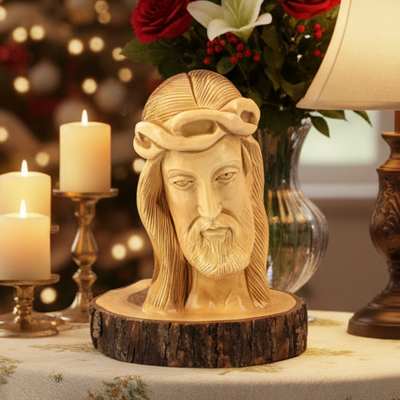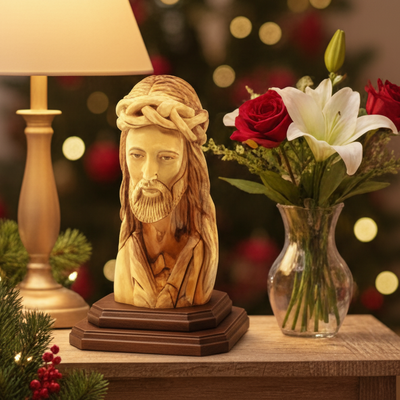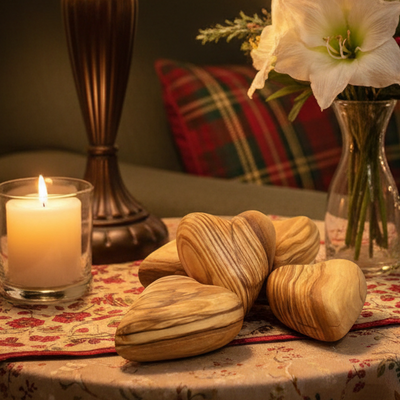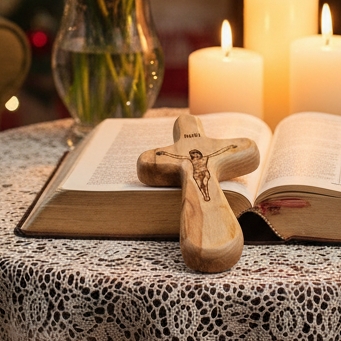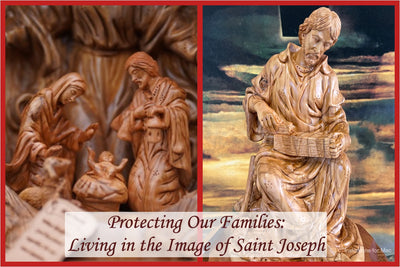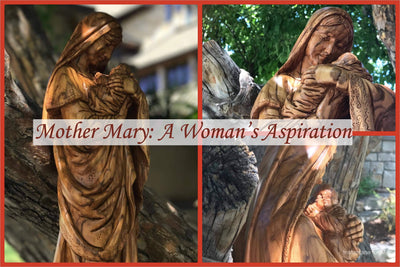Olive Oil an Anointing Balm:
There are many reasons why olive oil was a logical choice to be an anointing balm.
- Besides being edible, olive oil remains fresh for considerable lengths of time.
- Unlike dairy products, it does not quickly sour.
- Unlike wine, it does not turn bitter.
- It is not diluted with water, but as a liquid, it remains easy to pack and transport from place to place.
- Its richness in its gold-like color, texture and taste, its nourishing qualities, and the unmistakable feel of oil being applied to the forehead, including the longevity in which it remains – are all powerful, lasting sensations.
- Furthermore, the interconnectedness of olive oil with the olive tree, a symbol of continuity of people, community and civilization, and the historic significance of the olive branch, being a symbol of God’s salvation to Noah and his family after the Biblical Forty Days in the ark following the flood, were of immense significance. Even the process of the creation of olive oil – the years-long wait for the first fruits of a young olive tree, the count-down to the harvest, the process of transforming the bitter fruit into a delicious, life-sustaining liquid – give a sense of a moment of completion and fulfillment of allowing God to do His will through time, circumstance, and the labors of man.
 Watch: Harvesting Olive Trees in the Holy Land
Watch: Harvesting Olive Trees in the Holy Land
Anointing Oil in the Bible:
There are more than 70 Biblical verses that relate to the process of anointing oil. Most famously, David was anointed by the Prophet with oil in Samuel 1, Verse 13:
“Then Samuel took the horn of oil, and anointed him in the midst of his brethren: and the Spirit of the Lord came upon David from that day forward. So Samuel rose up, and went to Ramah.”
Today, Christians across many denominations recreate this act of blessing through its use in sacraments, and as a regular form of blessing. Even part of the service of coronation of monarchs included anointing of the new ruler with oil, in reference to King David. Unlike incense, which requires a multi-part process for its creation, the most historic oil that is used in the Holy Land is simply olive oil.

Olive Oil in Oil Lamps
In the Holy Land and in other parts of the Christian east, olive oil serves another important liturgical function. The use of oil lamps – sometimes called lampadas – is a common practice. Oil lamps were the alternative to wax candles, which until recently were extremely rare and expensive, and of a lesser quality than in North Atlantic cultures due to the lack of raw materials in sufficient quantities. Orthodox churches in particular are known for their use of oil lamps (although in places such as Russia and Ukraine, the use of sunflower or corn oil is more common).
Olive Oil in Churches
Olive oil, however, burns particularly well, and so its use as a fuel for the illumination of icons, altars and other spaces in churches became important. Considering how many lamps must be lit in even a modest village church on a daily basis, olive oil serves as an excellent donation to any church.
1. Orthodox or Melkite (Greek Catholic) Village Churches:
Anyone who has visited an Orthodox or Melkite (Greek Catholic) village church on a major feast day such as a feast related to the Virgin Mary, Saint George, Saint Nicholas or the Prophet Elijah will have observed the process of Christian faithful bringing in olive oil as an offering to their heavenly intercessors, as a token of thanks, to address a pressing need or at the start of a new venture.
2. The Tomb of Saint George

In places such as the Tomb of Saint George in the city of Lod, near Tel Aviv, holy oil is actually poured over the stone sarcophagus of Saint George and then collected using tissues, q-picks, and even syringes by pilgrims to bring back to their homes as blessings!
Join us today in a remarkable Pilgrimage to the Holy Land, including the Tomb of Saint George, and be one of the most blessed people who get to walk on the footsteps of Jesus Christ.

So next time you are in the grocery store, take a second look at your shopping list and see if you should pick up a bottle of pure olive oil to keep in your cupboard. Who knows when you might need it for something more than cooking!
We, the Bethlehem Handicrafts’ team, are so proud to put the Holy Land in your hand by giving you a variety of the best and the most outstanding original Bethlehem’s olive wood carvings with the best quality made in the Holy Land.
